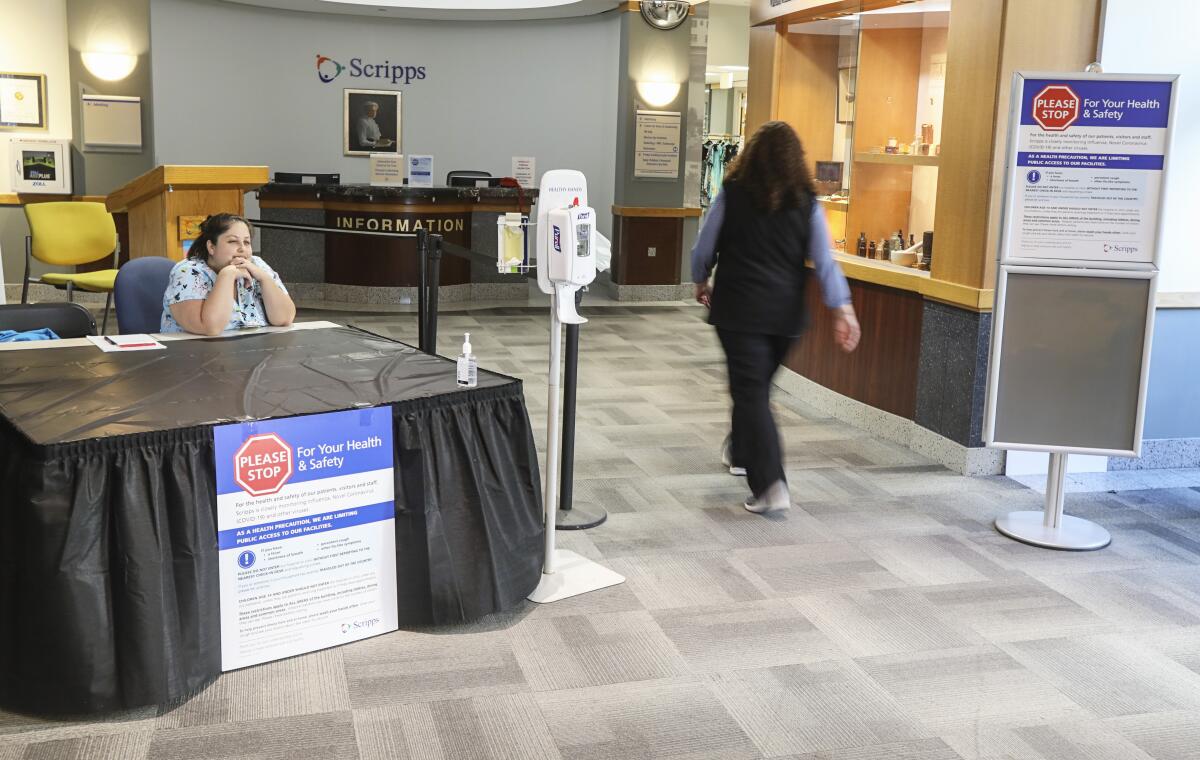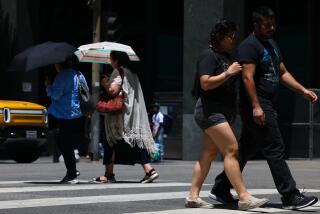As coronavirus spreads, warnings become more urgent for the elderly and frail

- Share via
As public health officials move to confront the coronavirus, they are targeting their most urgent messages to the elderly and frail who are at greatest risk from COVID-19.
California officials have been urging that group to avoid large public gathering, travel and events. The Santa Clara city library is canceling all programs for the upcoming week, and most programs at the senior center. San Jose’s senior meals program will transition to a boxed to-go pick-up format.
On Sunday, federal officials reiterated that message.
“If you are an elderly person with an underlying condition, if you get infected, the risk of getting into trouble is considerable. So it’s our responsibility to protect the vulnerable,” said Dr. Anthony Fauci, director of the National Institute of Allergy and Infectious Diseases, on NBC’s Meet the Press. “When I say protect, I mean right now. Not wait until things get worse. Say no large crowds, no long trips. And above all, don’t get on a cruise ship.”
“This will be a recommendation,” Fauci added. “If you’re a person with an underlying condition and you are particularly an elderly person with an underlying condition, you need to think twice about getting on a plane, on a long trip. And not only think twice, just don’t get on a cruise ship.”
Those at higher risk include those over the age of 70 and with underlying medical conditions such as diabetes, obesity, asthma, disease of the heart, lung or kidney and those with weakened immune systems. If someone who falls in one of these categories does get sick, early diagnosis is important to allow more time to treat the patient, which may include putting a patient on oxygen or, when necessary, a ventilator to help them breathe if their lungs begin to fail.
Last week, Santa Clara County public health officials urged seniors and those who are medically vulnerable to avoid large gatherings.
“It is important to remember that, for about 80% of the population, this disease will be mild. While many persons in our community may get sick, the vast majority will recover. The added measures are being used to protect those in our community who are likely at greatest risk for having severe disease,” said George Han, the county’s deputy health officer.
Santa Clara officials say the risk of severe illness starts to increase at age 50 and grows with age. The highest-risk group comprises people 80 and older. Individuals with cardiovascular disease, diabetes, cancer or chronic lung diseases such as COPD are also at a higher risk, officials said.
A big concern is nursing homes, where many of the deaths in the United States have been centered.
“If I were going to have a bunch of 90-year-olds at a birthday party, I probably wouldn’t have that many there — and I certainly wouldn’t have a lot of kids running around infecting them,” said Dr. George Rutherford, an epidemiologist and infectious disease expert at UC San Francisco.
Fears of the virus are well-founded when it comes to these high-risk groups, and efforts should be focused on “keeping this virus away from nursing homes, long-term-care facilities and elderly people whose lungs can’t recover from this,” said Dr. Jeremy Faust, emergency physician at Brigham and Women’s Hospital and an instructor at Harvard Medical School.
More to Read
Sign up for Essential California
The most important California stories and recommendations in your inbox every morning.
You may occasionally receive promotional content from the Los Angeles Times.












